subscribe or unsubscribe
new email address?
send us your comments
version française |

|
Winter 2009/Spring 2010
Issue no. 16 |
|
| Welcome to the European Language Gazette, an online newsletter keeping you up to date with news about ECML events, projects and resources as well as developments in the Language Policy Division and other relevant sectors of the Council of Europe´s work. The Gazette is published two times a year in Summer/Autumn and in Winter/Spring. Subscribers are informed by e-mail when each new issue is published. We hope you appreciate this issue and look forward to your feedback. |
|
 2009 was the second year of the Centre's third medium-term programme of activities "Empowering language professionals" (2008-2011). The Annual Report of the Governing Board of the Enlarged Partial Agreement on the European Centre for Modern Languages (Graz) to the Council of Europe's Committee of Ministers reflects the whole range of activities the ECML performed in 2009 and focuses on: 2009 was the second year of the Centre's third medium-term programme of activities "Empowering language professionals" (2008-2011). The Annual Report of the Governing Board of the Enlarged Partial Agreement on the European Centre for Modern Languages (Graz) to the Council of Europe's Committee of Ministers reflects the whole range of activities the ECML performed in 2009 and focuses on:
- the programme activities and the new short-term projects for 2010-2011;
- the European Day of Languages 2009;
- the developments on the Contact Points website;
- the new publications;
- the co-operation within the Council of Europe Department of Language Education and Policy, the European Commission, professional international non-governmental organisations and other institutions/associations, and Canada;
- budgetary issues;
- the ECML programme evaluation and impact on the ECML's work;
- the first ECML event organised in Montenegro and other events supported by the ECML;
- the co-operation with the host country.
2009 at the ECML in figures:
Read the executive summary: English - French
back to top
|

Workshops are moderated by ECML project teams. They are an opportunity for experts working in the area of language education to get involved in an ECML project. Experts interested in participating at a workshop are invited to consult the ECML events calendar and to take up contact with the National Nominating Authority (NNA) in their country. The ECML usually invites one participant per member state following the nomination from the NNA. It is expected that the participants are in a position to act as multipliers for passing on information and involving a wider group of people in their countries. Details on dates, themes and participant's profiles are available in the Centre's events calendar.
How to get involved
Take up contact with your National Nominating Authority
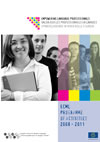
Brochure: English - French
back to top
|
 Three new projects (two of them follow-up projects) and a special support activity were launched at the beginning of 2010. The project “Training teachers to use the European Language Portfolio – follow-up” (ELP-TT2) and the project “Training in relating language examinations to the Common European Framework of Reference for Languages” (RelEx) are continued with new focuses for the 2010-2011 term due to the need for continued support in the area of ELP and CEFR implementation as stressed by ECML member states. In addition, following a restricted call for tender, the project “Mobility programmes for plurilingual and intercultural education - Tools for language teachers (PluriMobil)” was set up with Mirjam Egli (Switzerland) as coordinator. Three new projects (two of them follow-up projects) and a special support activity were launched at the beginning of 2010. The project “Training teachers to use the European Language Portfolio – follow-up” (ELP-TT2) and the project “Training in relating language examinations to the Common European Framework of Reference for Languages” (RelEx) are continued with new focuses for the 2010-2011 term due to the need for continued support in the area of ELP and CEFR implementation as stressed by ECML member states. In addition, following a restricted call for tender, the project “Mobility programmes for plurilingual and intercultural education - Tools for language teachers (PluriMobil)” was set up with Mirjam Egli (Switzerland) as coordinator.
- "Classroom assessment related to the Common European Framework of Reference" (ClassRelEx)
Project website - Abstract
- "Mobility programmes for plurilingual and intercultural education – Tools for language teachers" (PluriMobil)
Project website - Abstract
- "Enhancing Romani language education in schools in Europe" (QualiRom)
Abstract: English - French
Team members: Ulli Pawlata, Karl Franzens University Graz, Austria, Jelena Filipović, University of Belgrade, Serbia; Helena Sadilková, Charles University Prague, Czech Republic; Reeta Toivanen, Centre for Research on Ethnic Relations and Nationalism (CEREN), Finland.
ECML expert: Barbara Lazenby Simpson, Trinity College Dublin, Ireland
Advisors: Dieter Halwachs, Karl Franzens University Graz, Austria; David Little, Trinity College Dublin, Ireland.
The aim: to respond to the need for quality provision in Romani language, given the crucial importance of the issue of Roma education throughout Europe – especially amidst continued discrimination against the Roma and Traveller communities – and in the context of the Council of Europe’s comprehensive approach to Roma and Traveller issues.
Working languages: English, German.
back to top
|
 Jointly with the Austrian authorities who successfully support the Centre’s operations, an anniversary seminar with the Permanent Representatives of the member states to the Council of Europe, as well as the National Nominating Authorities and the National Contact Points for the ECML in the Centre's 34 member states will be organised at the Centre’s premises in Graz on 1-2 July. Jointly with the Austrian authorities who successfully support the Centre’s operations, an anniversary seminar with the Permanent Representatives of the member states to the Council of Europe, as well as the National Nominating Authorities and the National Contact Points for the ECML in the Centre's 34 member states will be organised at the Centre’s premises in Graz on 1-2 July.
Established in 1995 in Graz, Austria, as a Council of Europe Partial Agreement, the ECML has been serving the community of language education professionals in Europe and beyond for over 15 years. This unique intergovernmental centre offers concrete approaches to issues and challenges facing Europe’s multicultural societies in a period of unparalleled change and mobility. The Centre has successfully completed two large-scale medium-term programmes of activities comprising approximately 50 projects coordinated by international teams of experts and directly involving over six thousand language professionals in Europe and beyond, reaching as afield as Canada, Africa and Japan. Empowering language professionals is also the overarching objective of the current 4-year programme of ECML activities serving the 34 states which have acceded to the Enlarged Partial Agreement to date.
back to top
|
- QualiTraining at Grassroots Level (QUALITRAINING 2) (2008-2009)
view details
- Curriculum development for Content and Language Integrated Learning (CLIL-CD) (2008-2011)
- Content-based teaching for young learners (EPLC) (2008-2011)
view details
- Language associations and collaborative support (LACS) (2008-2011)
- Majority language instruction as basis for plurilingual education (MARILLE) (2008-2011)
view details
back to top
|
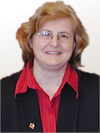 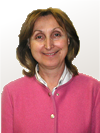 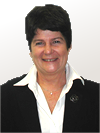 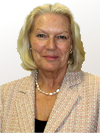
Coordinator: Laura-Mihaela Muresan, Academy of Economic Studies, Bucuresti, PROSPER-ASE Language Centre, Romania.
Team members:
Galya Mateva, Sofia Technical University, OPTIMA, Bulgaria;
Maria Matheidesz, EAQUALS - The European Association for Quality Language Services, Hungary;
Mary Rose, South Gloucestershire Council, United Kingdom.
"QualiTraining at Grassroots Level" was intended as a follow-up to the ECML project "QualiTraining - A Training Guide for Quality Assurance", with the aim to contribute to a wider dissemination of the Guide. Its main goal was to facilitate the implementation of "QualiTraining" concepts, processes and materials at "grassroots level" in a variety of national/regional educational contexts, while adapting workshop materials and supplementing them with further case studies, and continuing the training of trainers and multipliers through networking events, as well as national and regional workshops. This project helped in particular trainers to better understand the inter-relatedness between generic "QualiTraining" concepts and Council of Europe education instruments (CEFR, ELP) and educational practice, and to link these to their work in educational environments. The sectors of education focused on / addressed were schools, colleges, universities, teacher education, adult education, continuing education; associations of language educators; quality assurance bodies (such as national associations of language schools); cultural institutes involved in the provision of language courses, having or introducing quality assurance systems & their networks, etc.
In 2009, the ECML "QualiTraining" network was consolidated and extended. QualiTraining2 was promoted in particular in Albania, Austria, Bulgaria, the Czech Republic, Finland, France, Lithuania, Romania, Turkey and the UK. Its ideas were implemented in the higher education context in Romania, in the national system of inspections in Finland and in Cervantes teaching centres in Latin America. Furthermore the project was promoted through a considerable number of related articles published (8) and conference presentations (10).
The Central Workshop 4/2009 (Graz, Austria, 22-24 September 2009) brought together 29 participants (teacher educators, multipliers, language professionals involved in quality assurance systems) from 27 countries. The national event organised in Bucarest, Romania, on 28-29 January 2010 was the concluding event of this project. It brought together over 40 participants (university lecturers, teachers, heads of departments, general inspectors for various FLs from the Ministry, Simona Craciun - ECML National Nominating Authority - and Aurel Graur - National Contact Point for the ECML in Romania).
The project results will be published on the project website in 2010. They will include
- web-based presentation and documentation of project processes and outcomes,
- a final report on recommendations and strategies for further dissemination,
- case studies and worksheets adapted to local contexts,
- tools for monitoring and evaluating action research related to the implementation of the QualiTraining Guide, materials and processes,
- conference presentations and journal articles on the implementation of "QualiTraining" in various educational contexts,
- as well as an enriched glossary of key-terms.
Download the publication "QualiTraining - A Training Guide for Quality Assurance", 2007: English - German
QualiTraining website (outcome from the "QualiTraining - A Training Guide for Quality Assurance", 2004-2007)
Qualitraining 2 - Project presentation by Laura Muresan: video (English and German)
back to top
|
 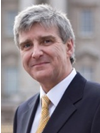  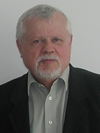
Coordinator: María Jesús Frígols Martin, Consellería de Educación de la Generalitat Valenciana, Spain.
Team members:
David Marsh, University of Jyväskylä, Finland;
Peeter Mehisto, Expert, Estonia;
Dieter Wolff, Bergische Universität Wuppertal, Germany.
Under the co-ordination of David Marsh, a previous project in the ECML programme 2004-2007 developed the "CLIL matrix" for CLIL awareness raising as well as for teacher training. The current project "Curriculum development for Content and Language Integrated Learning (CLIL-CD)" is developing a CLIL teacher education macro framework.
This macro framework will provide a broad picture of the knowledge and skills required to be a good CLIL teacher. It is for teachers who are specialists in languages, and other disciplines, and relates to work in primary, secondary and vocational sectors. When in final form educators will be able to access the Framework and then adapt it to suit the local context.
The Central Workshop 5/2009 took place in Graz from 22-23 October 2009. The event was co-ordinated by María Jesús Frigols-Martin (Spain) and co-facilitated by David Marsh (Finland), Peeter Mehisto (Estonia) and Dieter Wolff (Germany). Hanna Komorowska, the consultant of the project, and Rolf Kruczinna, a team member of a related ECML project (CLIL-LOTE-START) were special guests at the event. It brought together 30 participants from 28 countries. On this occasion the CLIL-CD project and the Macro Framework were presented and suggestions were made for revising the Macro Framework on the basis of an in-depth discussion. The interdisciplinary forum was especially important for rethinking the use of certain English language terms on education in the prototype.
The European Framework for CLIL Teacher Education was also explored during the event “Talking the Future: Languages in Education Think Tank” (Lapland, Finland, December 2009).
Complementary information: In April 2010 Cambridge University Press will publish Content and Language Integrated Learning. This volume provides a comprehensive overview of Content and Language Integrated Learning (CLIL) and a thorough discussion of CLIL from multiple perspectives. It is recommended for educators and scholars working with and in CLIL.
CLIL-CD - Project presentation by María Jesús Frígols Martin: video (English and Spanish)
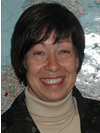  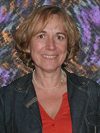 
Coordinator: Renate Krüger, Universität Erfurt, Philosophische Fakultät, Germany.
Team members:
Dorieta-Zdravkova Chakarova, Department for information and in-service teacher training, University of Shumen, Bulgaria;
Dominique Groux, Ministry of Education, France;
Chantal Muller, Haute Ecole de Namur, Belgium.
The EPLC project will produce and pilot content-based modules for language classes in French, German and Russian for use in primary schools (age 6-11) in Europe. The subject matter will essentially be taken from history/geography, music and the arts, and the themes and didactic and methodological approach chosen will be adapted to the needs and level of the learners to encourage them to use the L2 as a tool of communication.
34 experts from 27 European countries participated in the Central Workshop organised at the ECML from 5-7 November 2009. The event was co-ordinated by Renate Krüger (Germany) and co-facilitated by Dorieta Zdravkova Chakarova (Bulgaria), Dominique Groux (France), and Chantal Muller (Belgium). Special guests from related ECML projects were Kim Haataja (CLIL-LOTE-START) and Gerald Schlemminger (CLIL-LOTE-GO).
For further exploration of the theoretical background and the practical approach of the project an extensive bibliography, related web links and examples of teaching materials are available on the project website.
EPLC - Project presentation by Renate Krüger: video (French and German)
back to top
|
 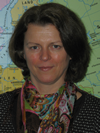 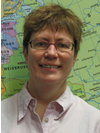  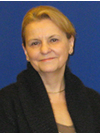
Coordinator: Terry Lamb, President FIPLV (Fédération internationale des professeurs de langues vivantes).
Team members:
Marianne Hepp (team member 2010-2011), President of the Internationaler Deutschlehrerverband, IDV;
Sigurborg Jónsdóttir, Secretary General, FIPLV Europe; President of STIL, the Association of Foreign Language Teachers in Iceland;
Janina Zielińska, President of the commission Europe centrale et orientale of the FIPF (Fédération internationale des professeurs de français) .
Associate partner:
Nicole Thibault, Executive Director, Canadian Association of Second Language Teachers (CASLT), Ottawa, Canada.
The LACS project on "Language Associations and Collaborative Support" focuses on dissemination of ECML results, in particular to those national multilingual and international monolingual teacher associations which are members of International Federation of Language Teacher Associations (FIPLV). Its primary purpose is to facilitate greater collaboration between the associations and with the ECML, and to provide better support to language professionals across Europe by improving the dissemination of innovative approaches in language education.
Two major developments took place in the second half of 2009. A Central Workshop was held at the ECML premises on 10-11 December 2009 (photo gallery). The event was co-ordinated by Terry Lamb together with Sigurborg Jónsdóttir (Iceland), Lucka Pristavec (Slovenia), Janina Zielińska (Poland) and Nicole Thibault (Canada) and brought together 30 representatives of language teacher associations from 29 countries (list). The aim was to discuss effective ways to disseminate the ECML work to the associations of the representatives, to explore synergies with planned events, and to present and discuss the contents of a handbook which will be finalised in 2011 and which is intended to support language teacher associations in evaluating and developing their support for teachers.
The project also launched its first newsletter in November 2009. This is the first of a series of regular mailings which are intended to inform of developments in the LACS project, to disseminate other ECML projects, to profile member associations of the International Federation of Language Teacher Associations (FIPLV) from around the world, and to point towards items of interest from the world of language teacher associations and the ECML.
LACS - Project presentation by Terry Lamb: video (English and French)
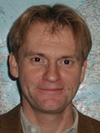 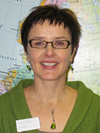 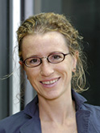 
Coordinator: Klaus-Börge Boeckmann, University of Vienna, Austria.
Team members:
Eija Aalto, University of Jyväskylä, Department of Teacher Education, Finland;
Andrea Abel, Europäische Akademie Bozen - Accademia Europea di Bolzano, Italy;
Terry Lamb, University of Sheffield, United Kingdom.
The MARILLE project is concerned with the language of instruction in schools - also called “majority language (ML) teaching” (e.g. teaching of German in Austria, English in the United Kingdom, or Hungarian in Hungary) - which is usually the official national language. MARILLE’s aim is to explore and compare successful strategies for handling linguistic and cultural diversity in majority language classrooms and to share examples of effective practice. The outcome should be a collection of resources and examples which will support teachers in multilingual classrooms, as well as a catalogue of principles and ideas for promoting plurilingualism in the majority language classroom.
In 2009, the project developed the "Framework for plurilingual majority language teaching", which is going to provide important basis for structuring resources, materials and strategies, and has also been an effective tool for planning and organising the ECML's Workshop 8/2009 (Graz, 15-16 December 2009).
This event was co-ordinated by Klaus-Börge Boeckmann (Austria), cofacilitated by Eija Aalto (Finland), Andrea Abel (Italy) and Terry Lamb (United Kingdom). It brought together 26 participants from 24 countries. A member from the team co-ordinating the ECML project "CARAP - A Framework of Reference for Pluralistic Approaches" also attended the workshop and presented some discussion points from the related project.
The event enabled in particular
- to discuss the urgent need for action to provide plurilingual majority language classrooms at all levels of the education system, including teacher education, school administration, materials development or classroom practice;
- to show practice examples of plurilingualism in majority language classrooms and concepts from the different national/regional contexts; in particular, to pool information and resources available to ML teachers in secondary schools for integrating plurilingual education into their teaching, and describe examples of effective practice for supporting classroom teachers' activities with regard to plurilingual education in ML-teaching by school organisation, curriculum development, teacher training; some of the examples are available on the project website;
- to identify practice examples documented on video; among others, a classroom video recorded with the ECML's support will be edited and published on the project website;
- to discuss change management strategies at different levels;
- to identify existing professional networks dealing with plurilingual education in ML-teaching and establish new ones with project participants; and
- to launch the co-operation with the ECML project CARAP which will give valuable impulses on the development of the MARILLE "framework".
The next steps of the project work will focus on publicising practice examples provided by workshop participants and on building up information about professional networks on the project website.
MARILLE - Project presentation by Klaus-Börge Boeckmann: video (English and German)
back to top
|
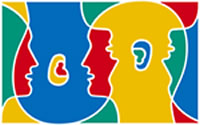
In 2009, the European Day of Languages (EDL) on 26 September was celebrated with increased enthusiasm and participation throughout Europe.
Despite the EDL falling on a Saturday record numbers of visits were recorded to the EDL website. Most hits were registered with the “calendar of events”, the “language quiz” and the “language treasures”. A newly developed “language game” also attracted lots of interested language learners. New gadgets such as the EDL lanyards in the five colours of the EDL logo, red, blue, yellow, green and orange, and “Talk to me!” imprints quickly ran out of stock.
In total 7 000 posters and 40 000 sheets of “Talk to me” stickers were sent out to the participating countries via their National Relays. By 26 September 513 events from 47 countries in Europe and worldwide were recorded in the calendar for 2009 with 70 events were registered both from Austria and the United Kingdom. Press articles about the events on the day itself were also published.
The Day is coordinated jointly by the European Centre for Modern Languages and the Language Policy Division of the Council of Europe, Strasbourg and Graz. National Relays nominated by the participating Council of Europe member states act as multipliers, circulating the EDL information and disseminating the promotional materials provided, as well as carrying out promotion for the Day at national/regional level and through the press.
To prepare EDL 2010 we count on the continued enthusiasm and dedication of many of the national relays in 41 countries and of languages teachers all over Europe. We encourage countries, where National Relays do not currently operate – Estonia, Montenegro, Croatia, Ukraine, Moldova and Georgia – to nominate one to ensure the promotion of Europe´s cultural richness, the education of more plurilingual individuals living in multilingual peaceful societies and to encourage lifelong language learning.
The Day differs from the Centre’s other activities in that it is not focused on a specialist target public but encompasses everyone interested in languages. With activities often organised as large-scale events in city and town centres around the continent as well as in schools, universities, adult learning centres, and businesses the EDL has a potential audience of millions of Europeans.
To get an idea of the scope and range of events organised please also pay a visit to our photo gallery.
back to top
|

Following on from the Memorandum of Cooperation signed by the ECML and the Canadian authorities in 2008, in 2009 the Centre developed a generic cooperation agreement with major professional INGOs active in the domain of language education outlining the modalities of the desired cooperation and formalising the commitment to work together on areas of common interest at institutional level. In an initial phase it was envisaged to propose the agreement to leading institutions and associations holding participatory status with the Council of Europe and which did not yet have formal links with the ECML.
The agreement was signed so far by the European Association for Quality Language Services (EAQUALS), the Association of Language Testers in Europe (ALTE), the World Federation of Modern Language Associations (FIPLV), the International Association of Applied Linguistics (AILA), the International Certificate Conference (ICC), the European Confederation of Language Centres in Higher Education (CercleS), European Association for Language Testing and Assessment (EALTA), and the Conseil européen pour les langues / European Language Council (CEL/ELC).
The ECML invited all partners, including representatives of the Canadian partner, the Language Policy Division and the European Commission, to participate in the first partner meeting on 7 January 2010 at the ECML to discuss issues of mutual interest, launch the ‘professional network forum on language education' and issue a common declaration.
"Graz declaration" on language education: English - French
 The European Commission has redesigned its multilingualism website to offer a transparent and comprehensive overview of the activities organised in this area. Links to the ECML and the Language Policy Division of the Council of Europe are also included on the site. The European Commission has redesigned its multilingualism website to offer a transparent and comprehensive overview of the activities organised in this area. Links to the ECML and the Language Policy Division of the Council of Europe are also included on the site.
There are several examples of the Council of Europe and the Commission taking up and building upon each other's work in the area of languages.

In 2009, the ECML was requested to become involved as partner in Piccolingo, an EU financed project. The goal of this two-year information campaign is to raise awareness among parents who choose the language for their children.
At the invitation of the European Commission, the ECML participated in the conference on "Early language learning for children of pre-school age" (Brussels, 24-25 September 2009). The following video interviews with Susanna Slivensky are available on the campaign's site:
- "Games as a useful tool to learn foreign languages" (English)
- "Multilingual classrooms are an asset in foreign language learning" (English, German).
Piccolingo website
Leaflet (PDF document) downloadable in 23 languages: Bulgarian - Catalan - Czech - Danish - Dutch - English - Estonian - Finnish - French - Galician - German - Greek - Hungarian - Italian - Latvian - Lithuanian - Maltese - Polish - Portugese - Romanian - Slovakian - Slovenian - Spanish - Swedish
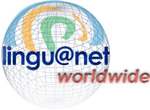
Lingu@net World Wide is a new EU Commission funded project, taking the award winning Lingu@net Europa site www.linguanet-europa.org one step further!
Lingu@net Europa, the multilingual, on-line resource centre for foreign language learning was developed over the last 12 years. The site provides information about, and links to good on-line resources from around the world relating to the learning and teaching of any modern foreign language.
Lingu@net Europa is based on the idea that if you are learning or teaching a language you could be interested in relevant resources in any language you understand - not only the resources you can find by searching in your mother tongue.
Lingu@net Europa gives multilingual access to over 3,500 catalogued on-line resources, many of them specifically for learners. It also offers support for adult learners on how to learn a language, how to assess your level and how to communicate with other learners on-line.
At the moment, you can access the whole site in: Basque, Bulgarian, Catalan, Danish, Dutch, English, Estonian, Finnish, French, Galician, German, Greek, Icelandic, Italian, Lithuanian, Maltese, Polish, Portuguese, Spanish and Swedish.
In this new project phase (Dec 2009 – Nov 2011), the project consortium, consisting of 34 organisations from all over Europe with CERCLES and ECML as dissemination partners, are adding twelve new interface languages, including all official EU languages, Arabic, Chinese, Hindi, Japanese and Russian.
The new Lingu@net World Wide site www.linguanet-worldwide.org will be launched in spring 2011, giving access to over 5,000 good quality online resources and providing online support and advice for language learners in 32 languages.
Please see the Lingu@net Europa site or contact the Lingu@net Europa Information Unit for more information and to suggest a resource on: info@linguanet-europa.org.

The British Council invited the Council of Europe to become a partner within a large-scale initiative, entitled “Language-rich Europe”, which focused on identifying indicators for language policy, language use and attitudes to language learning. Ultimately the initiative seeks to lead to the conception of a European index on languages and their use, intended for widespread promotion among decision-makers. “Language-rich Europe” also aims to bring about changes in perception regarding the importance of languages and institutional change as well as assisting in agenda setting in European countries and ultimately in policy change using 2020 as an orientation.
The ECML Governing Board has approved the Centre’s involvement in the project. The ECML has offered to provide professional expertise (consultancy) in the development of the index structure by its experts and to host events to disseminate and discuss the results.
British Council website
back to top
|
On 4 February 2010, the ECML Director participated in the international seminar “Languages and Intercultural Communication” (House of Lords, London). This seminar was the second in a series of events focusing on the theme of “Languages in Europe – Theory, Policy, Practice” bringing together policy-makers, academics and practioners.
Among the project partners involved were the London School of Economics and Political Science and the Languages Company, as well as the European Confederation of Languages Centres in Higher Education (CercleS) and the International Federation of Language Teacher Associations (FIPLV), who are both members of the ECML's Professional Network of international non-governmental organisations.
The main outcome will be a high-level report outlining the main issues, current good practice and proposals for future action to overcome obstacles and promote positive conditions for the flourishing of linguistic diversity. A working group is to be established which will study how to create a network of ongoing support for multilingual policies and how to facilitate greater synergy between theory, policy and practice in the field.
Web page of the LETPP Seminar "Languages and intercultural communication" (London, 4 December 2009)
LETPP website
ECML publication on the topic: Council of Europe / European Centre for Modern Languages, Languages for social cohesion: language education in a multilingual and multicultural Europe: European Centre for Modern Languages 2004-2007, ISBN 978-92-871-6428-5 (contributions in English, French and German).
Download the book from the ECML website
Buy the book via the Council of Europe online bookshop
 How can the efficiency of language teacher training be improved in Europe? A series of recommendations suggest possible actions on the basis of the results of a Summer University in Sèvres in 2009. How can the efficiency of language teacher training be improved in Europe? A series of recommendations suggest possible actions on the basis of the results of a Summer University in Sèvres in 2009.
In July 2009, more than a hundred decision makers in the field of language and education policy, including the Executive Director of the ECML, met at the Centre international d’études pédagogiques (CIEP) at Sèvres (France) to define new ways of optimising language teacher training in Europe. This Summer University, designed by a consortium of 7 institutions - including the ECML National Contact Points in Austria, France, and Poland - was organised with support from the European Commission. The results of the event (texts, videos, recommendations) can be found at the following address: www.semlang.eu
In particular, a series of 'Recommendations for optimising language teacher training in Europe focusing on the following domains were drafted:
1. Identity vs. profession: Identifying the language-teaching professional
2. Professionalisation vs. educational/training structures: Implementing lifelong learning
3. Knowledge vs. values: Multilingual language education across borders and grids
4. Multilingualism vs. languages: Conceptual and practical needs
5. ICT vs. literacy: Digital nativism and generation gaps
6. Dissemination vs. specialisation: Complexity of topics and tasks
More information:
Recommendations for optimising language teacher training in Europe(available in English, French and German)
CIEP website
ECML web page dedicated to its National Contact Points
back to top
|

The National Contact Points (NCP) of the ECML are entrusted with promoting the activities, products and services of the ECML at national level in all 34 member states and in Canada.
The ECML website dedicated to the NCPs promotes national expertise and resources and provides a working platform for the contact points network. A specific page is allocated to the 35 countries to present each NCP, its services and ECML and Council of Europe resources available in the national language(s).
A newly introduced feature allows to discover the national expert pool involved in ECML activities. To promote national expertise and stimulate synergies within the framework of the ECML programme of activities 2008-2011, the new section "Experts involved in ECML activities" provides the contact details of the coordination teams and associate partners of the Centre's project, as well as of the workshop participants involved in ECML workshops listed according to their country of residence. The participants' workshop reports are also published in this section.
In addition, online visitors may
- consult the annual activity report of the NCPs describing their dissemination initiatives in 2009;
- download the new information folder of the ECML as well as some of the ECML publications translated by states into national languages.
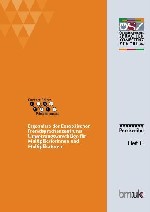 The Austrian Centre for Language Competence in Graz (Österreichisches Sprachenkompetenzzentrum, ÖSZ) has published a brochure that describes its work as the National Contact Point for the ECML in Austria, focusing in particular on the dissemination efforts of the ECML's programme results 2004-2007. Different ways to implement these results are suggested to multipliers - teachers and teacher trainers - through concrete examples of teaching practice and materials. The Austrian Centre for Language Competence in Graz (Österreichisches Sprachenkompetenzzentrum, ÖSZ) has published a brochure that describes its work as the National Contact Point for the ECML in Austria, focusing in particular on the dissemination efforts of the ECML's programme results 2004-2007. Different ways to implement these results are suggested to multipliers - teachers and teacher trainers - through concrete examples of teaching practice and materials.
Read the brochure (German only): Riegler Petra, Ergebnisse des Europäischen Fremdsprachenzentrums: Umsetzungsvorschläge für Multiplikatorinnen und Multiplikatoren, ÖSK Praxisreihe, Graz: ÖSZ, 2009
Sprachbox, ÖSZ e-newsletter: latest issue (February 2010, in German)
ECML website dedicated to the National Contact Point in Austria: English - French
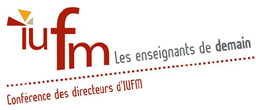
From 16 February to 16 March 2010, a survey was conducted among 14 teacher trainers working in teacher training institutions (instituts universitaires de formation des maîtres, IUFM) who participated in ECML workshops during the period 2006-2009. The synthesis of the results highlights impact at different levels following participation in an ECML workshop:
1. Impact linked to the teacher training institutions:
- dissemination of information among colleagues and trainees,
- use of elements developed during the workshop for training or research purposes,
- provision of teacher training with the assistance of an expert involved in an ECML project.
2. Impact linked to professional and personal development:
- awareness-raising concerning innovatice practice,
- better understanding of the professional profile of a teacher trainer.
3. Dissemination actions related to the ECML work:
- Follow-up of activities related to the ECML project in which the participants are involved,
- setting up of links with another European project,
- participation in other ECML projects,
- promotion of ECML projects and activities among trainees, student teachers, and colleagues (in France and beyond),
- contacts with other participants,
- involvement of other workshop participants in training projects and an international colloquy,
- organisation of a dissemination action: training provision, publication of articles, publication of a communiqué within the framework of a colloquy, organisation of a conference on a topic dealt with during a workshop.
4. Short and medium-term effects:
- development of professional and personal contacts with European colleagues,
- profusion of ideas related to training following a workshop participation.
Results of the survey (in French, PDF)
For any additional information about this survey, please contact Dorothée Orjol-Sousa, CDIUFM (e-mail)
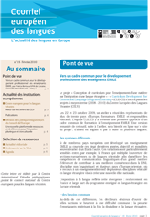
The Centre international d’études pédagogiques (CIEP) contributes to the development of international cooperation in education. The Centre's work is based on two major areas of activity:
- languages: French as a foreign language and foreign languages in France
- education: international cooperation in education and training.
As the National Contact Point for the ECML in France, CIEP publishes the Courriel européen des langues, an online newsletter, three times a year free of charge. It is aimed at staff in language education. It highlights the work and publications of the ECML and the Language Policy Division of the Council of Europe in the field of language policy and education, as well as the European Commission's programmes and initiatives in this area, provides tools and references, and encourages reflection.
The first issue of the year 2010 has just been published with a brand new design that improves the newsletter's readabilty and userfriendliness. The content focuses on current developments relating to the European institutions and on the professional development of CLIL* teachers.
* CLIL: content and language integrated learning
Latest issue of the Courriel européen des langues (February 2010) (only French)
All issues
Contact: Bernadette Plumelle, Head of the Resources and Documentary Engineering Centre, e-mail
ECML web pages dedicated to the Centre's National Contact Point in France
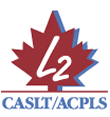
The Canadian Association of Second Language Teachers (CASLT) promotes the advancement of second language learning and teaching throughout Canada. The FSL Monthly Newsletter of CASLT is a free publication in English and in French. It provides news and tips to French as a Second Language (FSL) educators. The article dedicated to the ECML in the April issue highlights the European Language Gazette.
Newsletter: April 2010 - March 2010 - February 2010 - January 2010 - December 2009 - November 2009
ECML web pages dedicated to the National Contact Point for the ECML in Canada
back to top
|
 The Language Network Graz was officially founded in November 2009. With the seat of the European Centre for Modern languages (ECML) in Graz the City aims to position itself as a focal point for competence in language research and education within Europe and to strengthen the profile of Graz as a centre of excellence in language-related fields. The Language Network Graz was officially founded in November 2009. With the seat of the European Centre for Modern languages (ECML) in Graz the City aims to position itself as a focal point for competence in language research and education within Europe and to strengthen the profile of Graz as a centre of excellence in language-related fields.
Centred on the ECML, leading institutions in Graz have joined the Language Network Graz. The network supports local and regional initiatives promoting plurilingualism, encourages shared knowledge and experience, initiates joint projects and combines resources to increase the visibility of Graz as a centre of language excellence.
In 2009 a joint initiative was launched to spread the use of the European Language Portfolio (ELP) in Styrian schools. About 2500 copies of the Portfolio were distributed; as a supporting measure the Pedagogical University offers training modules for teachers who wish to use the ELP.
This is the third of a series of 3 actions in Graz which highlight the ELP – the others being the 8th Seminar for the European Language Portfolio (29 September - 1 October 2009) and the Austrian ELP-Conference (1-2 October 2009).
Website of the Language Network Graz
See 2 videos of the "Foundation of the 'Sprachennetzwerk Graz'" (length: 5 m 18s - 12 m 03 s)
Website of the Council of Europe dedicated to the European Language Portfolio
back to top
|
The ECML benefited from the excellent support of its trainees:
- Mair Bell: programme (July-December 2009);
- Silvia Oñate: website (July-December 2009);
- Ioanna Ydraiou: Communication, Documentation and Resource Centre (July-December 2009);
- Indira Dzopa: administration (September 2009 - February 2010).
The ECML staff would like to say a big thank you for their hard work and commitment to the Centre and offer their best wishes to all of them.
In addition Karine Witvitzky (France) was recruited to work on a 3-month fellowship (5 January - 31 March 2009) and on a half-time fellowship (15 September - 14 December 2009) within the project ‘A Framework of Reference for Pluralistic Approaches’ (CARAP). Her work focused on the development of a databank of classroom materials.
In January 2010 the ECML welcomed its three new trainees:
- Sonia Liebmann: programme,
- Siglinde Pape: website,
- Bianca Popa: Communication, Documentation and Resource Centre.
Tiphanie Mauser (Germany) has been recruited on a fellowship from 15 March - 15 June 2010 within the framework of the project "Good practice in Content and Language Integrated Learning for languages other than English" (CLIL-LOTE-GO). Her tasks focus on translating the bilingual CLIL textbook which will result from the project, drafting a trilingual CLIL glossary (English, French, German), helping with the publication, dissemination and promotion of the project results and providing logistic support for the organisation of a project workshop at the ECML.
The ECML offers traineeships for recent graduates with an excellent command of at least one of the working languages of the Council of Europe (English, French). Traineeships last 6 months (January to June or July to December) and candidates must apply for one of the areas of the Centre's work: programme activities; communication, information and documentation services; or website. The Centre also offers traineeships in its administration section once a year from September to February.
More information on trainees' profiles, duties and tasks, on living and working conditions in Graz, together with the application procedure and form can be found on the ECML traineeship web pages.
Application deadlines:
- 5 April 2010 for the period July to December 2010 and
September 2010 to February 2011 for Administration trainees only
- 30 September 2010 for the period January to June 2011.
ECML traineeship website
Application form
Trainees share their experience at the ECML
back to top
|

After a long battle with illness Maria Matheidesz passed away on Wednesday, 24 March. Maria had worked together with the ECML since 1998 and most recently been a coordination team member on the highly successful "Quality training at grassroots level" (Qualitraining2) project.
She had also previously been a member of the coordinating team on the "Quality assurance and self-assessment for schools and teachers" project and had been involved in several activities hosted at the ECML in her functions with the European Association for Quality Language Services (EAQUALS).
Maria was a dedicated professional with a great sense of humour who became a close friend to many within the ECML community. Her courageous fight against her illness over a long period of time and her refusal to let it dictate her life provides an inspiration to us all - she will be sadly missed.
On behalf of all those who worked with her at the ECML we would like to express our deepest sympathy to Maria's family in Budapest.
A condolences book has been opened for Maria – to contribute please follow the link.
back to top
|
 The new ECML flyer is comprised of a trilingual folder providing general information about the Centre and four monolingual fact sheets describing the mission and structure, the programmes of activities, the publications, as well as the services of the ECML. The flyer may be ordered from the ECML (information@ecml.at). The four fact sheets are also downloadable from the Centre's website. The new ECML flyer is comprised of a trilingual folder providing general information about the Centre and four monolingual fact sheets describing the mission and structure, the programmes of activities, the publications, as well as the services of the ECML. The flyer may be ordered from the ECML (information@ecml.at). The four fact sheets are also downloadable from the Centre's website.
In addition to the initial versions in English - French - German, the four fact sheets are also available in Albanian, Armenian, Croatian, Lithuanian, Montenegrin, Polish, Romanian, Slovak and Slovenian thanks to the translations ensured by the Centre's National Contact Points. Additional language versions will follow in 2010.
Overview of all language versions (see "ECML fact sheets")
Other promotional materials on the ECML website - "Press and Information" section
back to top
|
 EPOSTL - European Portfolio for Student Teachers of Languages - A reflection tool for language teacher education EPOSTL - European Portfolio for Student Teachers of Languages - A reflection tool for language teacher education
ISBN 978-92-871-6207-6
David Newby, Rebecca Allan, Anne-Brit Fenner, Barry Jones, Hanna Komorowska, Kristine Soghikyan
The European Portfolio for Student Teachers of Languages (EPOSTL) is a document intended for students undergoing their initial teacher education which encourages them to reflect on the didactic knowledge and skills necessary to teach languages, helps them to assess their own didactic competences and enables them to monitor their progress and to record their experiences of teaching during the course of their teacher education. It was developed for the European Centre for Modern Languages of the Council of Europe by a team of teacher educators from Armenia, Austria, Norway, Poland and UK, assisted by student teachers and teacher educators from 33 member states of the ECML. Building on insights from the Common European Framework of Reference and the European Language Portfolio as well as the European Commission- financed project European Profile for Language Teacher Education - A Frame of Reference (Profile), it seeks to help prepare students for their future profession in a variety of teaching contexts. Further, the EPOSTL can facilitate discussion of aims and curricula between teacher educators working within different national or European contexts.
Download the latest translations: Greek - Italian - Lithuanian
Download other language versions: English - French - German - Hungarian - Polish - (the Spanish and Russian versions will be published in 2010)
Buy the book in English, French or German at the Council of Europe online bookshop
More information about this ECML project:
-- See the project website "Piloting and Implementing the European Portfolio for Student Teachers of Languages" (2008-2011) (English and German)
-- Video presentation by David Newby, project coordinator (English and German)
back to top
|
 Acquiring competences in the languages of schooling is essential in order to guarantee equal access to education for all learners; this is a fundamental right. In 2009, the work carried out under this project has consisted mainly of the publication of a number of policy studies and key reference documents on the languages of schooling, both as subject and as a means of teaching other subjects (history, maths, etc.), on the Platform of Resources and References for Plurilingual and Intercultural Education. Acquiring competences in the languages of schooling is essential in order to guarantee equal access to education for all learners; this is a fundamental right. In 2009, the work carried out under this project has consisted mainly of the publication of a number of policy studies and key reference documents on the languages of schooling, both as subject and as a means of teaching other subjects (history, maths, etc.), on the Platform of Resources and References for Plurilingual and Intercultural Education.
The platform, which was officially launched in June 2009, presents work, in an integrated fashion, on the teaching/learning of all languages in/for education: languages of schooling, foreign languages and regional, minority and migration languages.
Policy Forum on “The Right of Learners to Quality and Equity in Education – The role of linguistic and intercultural competences”, Geneva, 2-4 November 2010
The Swiss authorities will very generously host a policy forum on the role played by languages in achievement at school in November 2010, which will coincide with the 50th anniversary of Council of Europe projects in the field of languages.
The aim of this event will be to draw the attention of those responsible for curricula and programmes in compulsory schooling to the linguistic weakness of many pupils in the languages of schooling (used as a means of instruction across the curriculum) and the consequent problems of inequality, to present a number of responses and identify together ways and means of co-operation in this area.
Language(s) of schooling
www.coe.int/lang : Section "Languages of schooling" /
J. Panthier
back to top
|
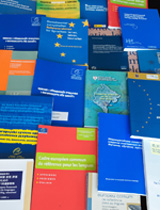 A Recommendation of the Committee of Ministers to member states on the Use of the Council of Europe’s Common European Framework of Reference for Languages (CEFR) and the promotion of plurilingualism (Recommendation CM/Rec(2008)7) was adopted by the Committee of Ministers in 2008. Following this Recommendation and the numerous tools published by the Language Policy Division to support implementation of the CEFR, training workshops for teachers and examiners were held at the European Centre for Modern Languages. A Recommendation of the Committee of Ministers to member states on the Use of the Council of Europe’s Common European Framework of Reference for Languages (CEFR) and the promotion of plurilingualism (Recommendation CM/Rec(2008)7) was adopted by the Committee of Ministers in 2008. Following this Recommendation and the numerous tools published by the Language Policy Division to support implementation of the CEFR, training workshops for teachers and examiners were held at the European Centre for Modern Languages.
Many member states use the CEFR when revising their foreign language programmes, teacher training and assessment. The European Union uses the language competence standards contained in the CEFR for the European Indicator of Language Competence. Canada has officially adopted the CEFR and the United States have undertaken to establish a link between their scales and those of the CEFR, and Japan has adapted the CEFR to suit its specific context, etc.
The Language Policy Division is drawing on its experience in the field of foreign languages, of which the CEFR is the reference document par excellence, for its work on the languages of schooling. As previously, the learner is at the centre of this work, which seeks to promote the value of and build on the whole range of every individual’s competences when they arrive in an education system in order to help them develop as fully as possible the linguistic and intercultural competences they need to participate actively in democratic society.
Common European Framework of Reference for Languages (CEFR)
www.coe.int/lang : Section "Common European Framework of Languages" / J. Panthier
back to top
|
 There are currently 103 validated ELP models. The current validation procedure for ELP models by the European Validation Committee will be replaced, in 2011, by an online registration of ELP models based on self-declaration. There are currently 103 validated ELP models. The current validation procedure for ELP models by the European Validation Committee will be replaced, in 2011, by an online registration of ELP models based on self-declaration.
The Strategy for the Future of the ELP was presented to ELP Contact Persons at the 8th International Seminar, which was held at the European Centre for Modern Languages (ECML) in Graz (29 September - 1 October 2009) at the kind invitation of the Austrian authorities. The participants, while airing some concerns, generally welcomed the proposed measures and agreed that the further success of the project depended greatly on implementation and the active support of policy makers in the member states. The participants studied a number of documents, including the Impact Study on the ELP and a draft revised Standard Adult Passport, and greatly contributed to their further development. The report on the seminar and the Impact Study are available on the ELP Website.
European Language Portfolio (ELP)
www.coe.int/portfolio / C. Reynolds
back to top
|
 An increasing number of member states are introducing systems to teach migrant adults the national/official language of the host country and to assess their language competences. In certain cases, language tests are compulsory before entry into the country is authorised. An increasing number of member states are introducing systems to teach migrant adults the national/official language of the host country and to assess their language competences. In certain cases, language tests are compulsory before entry into the country is authorised.
How can the Council of Europe, through its political principles and expertise, contribute to setting up favourable conditions and defining transparent and equitable training and assessment components in its member states? These are the concerns that guided the work that led to a first seminar in 2008, organised jointly by the Language Policy Division and the Migration Division of the Council of Europe.
The purpose of this event was to raise delegates’ awareness of aspects such as the application of the Common European Framework of Reference for Languages as an often used reference, tests and other forms of language competence assessment, the quality of courses, etc. Instruments (a series of thematic studies and case studies) and policy guidelines were produced.
Following positive feedback from the participants and an analysis of their expectations, a second event will be held in Strasbourg on 24 and 25 June 2010, for persons responsible for language policy and its assessment regarding migrants, on "Linguistic integration of adult migrants: ways of evaluating policy and practice".
The aim of the conference will be to examine assessment of the efficiency and impact of the systems in place in greater detail (as some states have already done) while enabling those who are at the beginning of the process to benefit from the experience of other states.
In addition, the results of a second survey will be presented, currently being conducted in all the Council of Europe member states on the linguistic criteria applied for entry into the state’s territory and the granting of residence permits or citizenship, and the conditions and scope of language courses available to adult migrants.
Language education policy for adult migrants
www.coe.int/lang - Section "Minorities and Migrants" /
Ph. Thalgott
back to top
|
 The final version of the Autobiography of Intercultural Encounters (AIE), incorporating a few technical improvements, was made available on the Division’s website in April 2009. The Language Policy Division will be pleased to add official translations of the Autobiography, that have been approved by the relevant authorities in the member states, to the website. It is planned to develop a companion volume to the AIE on mediated intercultural encounters, in other words, encounters with ‘the Other’ through any form of media. The final version of the Autobiography of Intercultural Encounters (AIE), incorporating a few technical improvements, was made available on the Division’s website in April 2009. The Language Policy Division will be pleased to add official translations of the Autobiography, that have been approved by the relevant authorities in the member states, to the website. It is planned to develop a companion volume to the AIE on mediated intercultural encounters, in other words, encounters with ‘the Other’ through any form of media.
Autobiography of Intercultural Encounters (AIE)
www.coe.int/lang : Section "Autobiography" / C. Reynolds
back to top
|
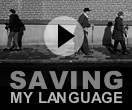 The Council of Europe has made public a web documentary called "Saving my language" on the European Charter for Regional or Minority Languages. The Council of Europe has made public a web documentary called "Saving my language" on the European Charter for Regional or Minority Languages.
"Saving my language" illustrates the use of these languages in everyday life among the population of northern Sweden. Combining several media, ranging from photography to video, including sounds recorded in situ and musical extracts, this interactive documentary takes us right to the heart of the issue of minority and regional languages.
Web documentary "Saving my language"
Website of the European Charter for Regional or Minority Languages
Contact
back to top
|
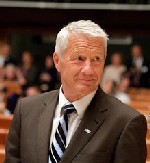 Thorbjørn Jagland (Norway) took up his functions as Secretary General of the Council of Europe on 1 October 2009 for a five-year term. The Secretary General is entrusted with the responsibility of achieving greater unity between the Organisation's members for the purpose of safeguarding and realising the ideals and principles which are their common heritage and facilitating their economic and social progress. He has the overall responsibility for the strategic management of the Council of Europe’s work programme and budget and oversees the day-to-day running of the Organisation and Secretariat. Thorbjørn Jagland (Norway) took up his functions as Secretary General of the Council of Europe on 1 October 2009 for a five-year term. The Secretary General is entrusted with the responsibility of achieving greater unity between the Organisation's members for the purpose of safeguarding and realising the ideals and principles which are their common heritage and facilitating their economic and social progress. He has the overall responsibility for the strategic management of the Council of Europe’s work programme and budget and oversees the day-to-day running of the Organisation and Secretariat.
Council of Europe website dedicated to the Secretary General
back to top
|

Policies and practices for teaching sociocultural diversity - Concepts, principles and challenges in teacher education (2009)
Authors: Anne-Lise Arnesen, Pavlina Hadzhitheodoulou-Loizidou, Cézar Bîrzéa, Miquel Angel Essomba, Julie Allan
ISBN: 978-92-871-6582-4
Price: € 15 / US$ 30
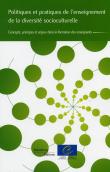 This publication is aimed at all staff in teacher education institutions. It intends to raise discussion about how teacher education, particularly in-service training, can prepare student teachers to become reflective professionals responsive to diversity in schools and classrooms. This work introduces some key concepts related to sociocultural diversity in education, analyses some challenges in teacher education and development, and identifies policy measures and guidelines for teachers' pre-service training institutions. This publication is aimed at all staff in teacher education institutions. It intends to raise discussion about how teacher education, particularly in-service training, can prepare student teachers to become reflective professionals responsive to diversity in schools and classrooms. This work introduces some key concepts related to sociocultural diversity in education, analyses some challenges in teacher education and development, and identifies policy measures and guidelines for teachers' pre-service training institutions.
Order the book: English - French
Intercultural Dialogue on Campus
(Council of Europe higher education series No.11) (2009)
Authors: Sjur Bergan and Jean-Philippe Restoueix (eds)
ISBN: 978-92-871-6503-9
Price: € 29 / US$ 58
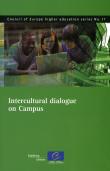 Considering that intercultural dialogue is one of the political priorities of the Council of Europe and that higher education is a natural partner in and promoter of intercultural dialogue and understanding, the present volume deals with intercultural dialogue in higher education in Europe, new values for higher education, the sources of intercultural conflict and their effects and the multiple facets of interculturalism by focusing on higher education institutions and campuses. A second volume will examine the role of higher education in furthering intercultural dialogue and understanding in broader society. Considering that intercultural dialogue is one of the political priorities of the Council of Europe and that higher education is a natural partner in and promoter of intercultural dialogue and understanding, the present volume deals with intercultural dialogue in higher education in Europe, new values for higher education, the sources of intercultural conflict and their effects and the multiple facets of interculturalism by focusing on higher education institutions and campuses. A second volume will examine the role of higher education in furthering intercultural dialogue and understanding in broader society.
Order the book: English - French
Human Rights Education in the School Systems in Europe, Central Asia and North America: A Compendium of Good Practice
Council of Europe, OSCE/ODIHR, UNESCO, OHCHR, 2009
ISBN 978-92-9234-765-9
 The right to education provides an entry point to human rights education, the right to learn about those rights, and the ways and means to protect and promote them in our societies. Within the education system, human rights education promotes a holistic, rights-based approach that includes both “human rights through education” and “human rights in education”. The right to education provides an entry point to human rights education, the right to learn about those rights, and the ways and means to protect and promote them in our societies. Within the education system, human rights education promotes a holistic, rights-based approach that includes both “human rights through education” and “human rights in education”.
This book compiles 101 examples of good practice in human rights education in primary schools, secondary schools and teacher training institutions in Europe. It aims to support quality teaching in these areas and to inspire educational policymakers working in education ministries and local school boards, administrators, teachers, teacher trainers, non-formal educators and all other interested actors, as well as to facilitate networking and the exchange of experience among education professionals.
There are five main Sections in the resource:
- Section 1: Laws, guidelines and standards;
- Section 2: Approaches and practices to improve the learning environment;
- Section 3: Teaching and learning tools for the classroom;
- Section 4: Professional development for educators and other adults; and
- Section 5: Evaluation and assessment approaches.
The following practice examples may be of particular interest to language teachers:
- no. 9. Standards of Human Rights Education in Schools (page 30);
- no. 21. Methodology and Resources for Integrating Roma Culture in Education (EURROM) (page 62);
- no. 32. Welcome to My Neighbourhood: A Local Exchange Programme for Students (page 85);
- no. 61. Lift Off: A Cross-Border Primary Human Rights Education Initiative (page 147);
- no. 83. Effective Teaching and Learning for Minority Language Children: Teacher Training and Classroom Resources (page 197);
- no. 96. Evaluation Model for Assessing the Intercultural Educational Objectives of Primary and Secondary School Textbooks (page 227);
- no. 100. Promoting Human Rights in Primary and Secondary School Textbooks: A Human Rights-Based Textbook Analysis (page 234).
Free download of the English version (the publication will be translated into French and Russian in 2010)
 Here you find documents and teaching material which you may print and/or photocopy. Some of this material (books or PDF files) is available free of charge. Here you find documents and teaching material which you may print and/or photocopy. Some of this material (books or PDF files) is available free of charge.
Pedagogical resources
back to top
|
 The Education Newsletter delivers news from the Directorate General for Education, Culture and Heritage, Youth and Sport of the Council of Europe. The Education Newsletter delivers news from the Directorate General for Education, Culture and Heritage, Youth and Sport of the Council of Europe.
Issue no. 27 (Spring-Summer 2009) presents, among others, the new Education Programme for 2010-2014: "Education for intercultural understanding, human rights and democratic culture" and delivers an interview with Waldemar Martyniuk: “Whoever is not acquainted with foreign languages knows nothing of his own” (p. 19-20)
Archived issues
back to top
|
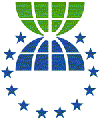 Global Education News is the electronic newsletter issued by the European Centre for Global Interdependence and Solidarity of the Council of Europe (Lisbon) where national global-education coordinators can share global education news and events, useful thematic links and educational materials. Global Education News is the electronic newsletter issued by the European Centre for Global Interdependence and Solidarity of the Council of Europe (Lisbon) where national global-education coordinators can share global education news and events, useful thematic links and educational materials.
This year, the North-South Centre (NSC) celebrates its 20th anniversary - twenty years of dialogue and understanding with partners beyond European boundaries, bringing world issues and world priorities in the European agenda. The NSC works in the field of global citizenship and youth empowerment while fostering the intercultural dialogue. The Global Education programme of the Council of Europe focuses in particular on awareness-raising and capacity-building and networking activities with partners from Latin America and Africa.
Latest Global Education Newsletter: no. 71 (March 2010)
-- archived issues
20th anniversary of the NSC:
-- publication (PDF) One World- Our World
-- Special webpage
Web page dedicated to EDUCATION - Strategies and Capacity Building for Global Education
back to top
|
|
|
 2009 was the second year of the Centre's third medium-term programme of activities "Empowering language professionals" (2008-2011). The Annual Report of the Governing Board of the Enlarged Partial Agreement on the European Centre for Modern Languages (Graz) to the Council of Europe's Committee of Ministers reflects the whole range of activities the ECML performed in 2009 and focuses on:
2009 was the second year of the Centre's third medium-term programme of activities "Empowering language professionals" (2008-2011). The Annual Report of the Governing Board of the Enlarged Partial Agreement on the European Centre for Modern Languages (Graz) to the Council of Europe's Committee of Ministers reflects the whole range of activities the ECML performed in 2009 and focuses on:

 Three new projects (two of them follow-up projects) and a special support activity were launched at the beginning of 2010. The project “Training teachers to use the European Language Portfolio – follow-up” (ELP-TT2) and the project “Training in relating language examinations to the Common European Framework of Reference for Languages” (RelEx) are continued with new focuses for the 2010-2011 term due to the need for continued support in the area of ELP and CEFR implementation as stressed by ECML member states. In addition, following a restricted call for tender, the project “Mobility programmes for plurilingual and intercultural education - Tools for language teachers (PluriMobil)” was set up with Mirjam Egli (Switzerland) as coordinator.
Three new projects (two of them follow-up projects) and a special support activity were launched at the beginning of 2010. The project “Training teachers to use the European Language Portfolio – follow-up” (ELP-TT2) and the project “Training in relating language examinations to the Common European Framework of Reference for Languages” (RelEx) are continued with new focuses for the 2010-2011 term due to the need for continued support in the area of ELP and CEFR implementation as stressed by ECML member states. In addition, following a restricted call for tender, the project “Mobility programmes for plurilingual and intercultural education - Tools for language teachers (PluriMobil)” was set up with Mirjam Egli (Switzerland) as coordinator. Jointly with the Austrian authorities who successfully support the Centre’s operations, an anniversary seminar with the Permanent Representatives of the member states to the Council of Europe, as well as the National Nominating Authorities and the National Contact Points for the ECML in the Centre's 34 member states will be organised at the Centre’s premises in Graz on 1-2 July.
Jointly with the Austrian authorities who successfully support the Centre’s operations, an anniversary seminar with the Permanent Representatives of the member states to the Council of Europe, as well as the National Nominating Authorities and the National Contact Points for the ECML in the Centre's 34 member states will be organised at the Centre’s premises in Graz on 1-2 July.

 Thematic area:
Thematic area: 





















 The European Commission has redesigned its
The European Commission has redesigned its 




 The Austrian Centre for Language Competence in Graz (Österreichisches Sprachenkompetenzzentrum, ÖSZ) has published a brochure that describes its work as the National Contact Point for the ECML in Austria, focusing in particular on the dissemination efforts of the ECML's programme results 2004-2007. Different ways to implement these results are suggested to multipliers - teachers and teacher trainers - through concrete examples of teaching practice and materials.
The Austrian Centre for Language Competence in Graz (Österreichisches Sprachenkompetenzzentrum, ÖSZ) has published a brochure that describes its work as the National Contact Point for the ECML in Austria, focusing in particular on the dissemination efforts of the ECML's programme results 2004-2007. Different ways to implement these results are suggested to multipliers - teachers and teacher trainers - through concrete examples of teaching practice and materials.


 The Language Network Graz was officially founded in November 2009. With the seat of the European Centre for Modern languages (ECML) in Graz the City aims to position itself as a focal point for competence in language research and education within Europe and to strengthen the profile of Graz as a centre of excellence in language-related fields.
The Language Network Graz was officially founded in November 2009. With the seat of the European Centre for Modern languages (ECML) in Graz the City aims to position itself as a focal point for competence in language research and education within Europe and to strengthen the profile of Graz as a centre of excellence in language-related fields.

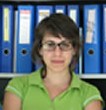
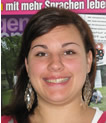
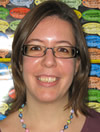
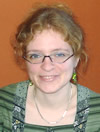
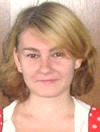
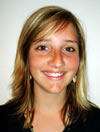

 The new ECML flyer is comprised of a trilingual folder providing general information about the Centre and four monolingual fact sheets describing the mission and structure, the programmes of activities, the publications, as well as the services of the ECML. The flyer may be ordered from the ECML (
The new ECML flyer is comprised of a trilingual folder providing general information about the Centre and four monolingual fact sheets describing the mission and structure, the programmes of activities, the publications, as well as the services of the ECML. The flyer may be ordered from the ECML ( EPOSTL - European Portfolio for Student Teachers of Languages - A reflection tool for language teacher education
EPOSTL - European Portfolio for Student Teachers of Languages - A reflection tool for language teacher education The list of publications presents the results of all of the ECML’s work (books, CD-Roms, websites, flyers, brochures). All ECML products are downloadable free of charge from the Centre’s website.
The list of publications presents the results of all of the ECML’s work (books, CD-Roms, websites, flyers, brochures). All ECML products are downloadable free of charge from the Centre’s website. A
A  There are currently 103 validated ELP models. The current validation procedure for ELP models by the European Validation Committee will be replaced, in 2011, by an online registration of ELP models based on self-declaration.
There are currently 103 validated ELP models. The current validation procedure for ELP models by the European Validation Committee will be replaced, in 2011, by an online registration of ELP models based on self-declaration. An increasing number of member states are introducing systems to teach migrant adults the national/official language of the host country and to assess their language competences. In certain cases, language tests are compulsory before entry into the country is authorised.
An increasing number of member states are introducing systems to teach migrant adults the national/official language of the host country and to assess their language competences. In certain cases, language tests are compulsory before entry into the country is authorised. The final version of the Autobiography of Intercultural Encounters (AIE), incorporating a few technical improvements, was made available on the Division’s website in April 2009. The Language Policy Division will be pleased to add official translations of the Autobiography, that have been approved by the relevant authorities in the member states, to the website. It is planned to develop a companion volume to the AIE on mediated intercultural encounters, in other words, encounters with ‘the Other’ through any form of media.
The final version of the Autobiography of Intercultural Encounters (AIE), incorporating a few technical improvements, was made available on the Division’s website in April 2009. The Language Policy Division will be pleased to add official translations of the Autobiography, that have been approved by the relevant authorities in the member states, to the website. It is planned to develop a companion volume to the AIE on mediated intercultural encounters, in other words, encounters with ‘the Other’ through any form of media.
 Thorbjørn Jagland (Norway) took up his functions as Secretary General of the Council of Europe on 1 October 2009 for a five-year term. The Secretary General is entrusted with the responsibility of achieving greater unity between the Organisation's members for the purpose of safeguarding and realising the ideals and principles which are their common heritage and facilitating their economic and social progress. He has the overall responsibility for the strategic management of the Council of Europe’s work programme and budget and oversees the day-to-day running of the Organisation and Secretariat.
Thorbjørn Jagland (Norway) took up his functions as Secretary General of the Council of Europe on 1 October 2009 for a five-year term. The Secretary General is entrusted with the responsibility of achieving greater unity between the Organisation's members for the purpose of safeguarding and realising the ideals and principles which are their common heritage and facilitating their economic and social progress. He has the overall responsibility for the strategic management of the Council of Europe’s work programme and budget and oversees the day-to-day running of the Organisation and Secretariat.

 This publication is aimed at all staff in teacher education institutions. It intends to raise discussion about how teacher education, particularly in-service training, can prepare student teachers to become reflective professionals responsive to diversity in schools and classrooms. This work introduces some key concepts related to sociocultural diversity in education, analyses some challenges in teacher education and development, and identifies policy measures and guidelines for teachers' pre-service training institutions.
This publication is aimed at all staff in teacher education institutions. It intends to raise discussion about how teacher education, particularly in-service training, can prepare student teachers to become reflective professionals responsive to diversity in schools and classrooms. This work introduces some key concepts related to sociocultural diversity in education, analyses some challenges in teacher education and development, and identifies policy measures and guidelines for teachers' pre-service training institutions. Considering that intercultural dialogue is one of the political priorities of the Council of Europe and that higher education is a natural partner in and promoter of intercultural dialogue and understanding, the present volume deals with intercultural dialogue in higher education in Europe, new values for higher education, the sources of intercultural conflict and their effects and the multiple facets of interculturalism by focusing on higher education institutions and campuses. A second volume will examine the role of higher education in furthering intercultural dialogue and understanding in broader society.
Considering that intercultural dialogue is one of the political priorities of the Council of Europe and that higher education is a natural partner in and promoter of intercultural dialogue and understanding, the present volume deals with intercultural dialogue in higher education in Europe, new values for higher education, the sources of intercultural conflict and their effects and the multiple facets of interculturalism by focusing on higher education institutions and campuses. A second volume will examine the role of higher education in furthering intercultural dialogue and understanding in broader society. The right to education provides an entry point to human rights education, the right to learn about those rights, and the ways and means to protect and promote them in our societies. Within the education system, human rights education promotes a holistic, rights-based approach that includes both “human rights through education” and “human rights in education”.
The right to education provides an entry point to human rights education, the right to learn about those rights, and the ways and means to protect and promote them in our societies. Within the education system, human rights education promotes a holistic, rights-based approach that includes both “human rights through education” and “human rights in education”. Here you find documents and teaching material which you may print and/or photocopy. Some of this material (books or PDF files) is available free of charge.
Here you find documents and teaching material which you may print and/or photocopy. Some of this material (books or PDF files) is available free of charge. The Education Newsletter delivers news from the Directorate General for Education, Culture and Heritage, Youth and Sport of the Council of Europe.
The Education Newsletter delivers news from the Directorate General for Education, Culture and Heritage, Youth and Sport of the Council of Europe. Global Education News is the electronic newsletter issued by the European Centre for Global Interdependence and Solidarity of the Council of Europe (Lisbon) where national global-education coordinators can share global education news and events, useful thematic links and educational materials.
Global Education News is the electronic newsletter issued by the European Centre for Global Interdependence and Solidarity of the Council of Europe (Lisbon) where national global-education coordinators can share global education news and events, useful thematic links and educational materials.